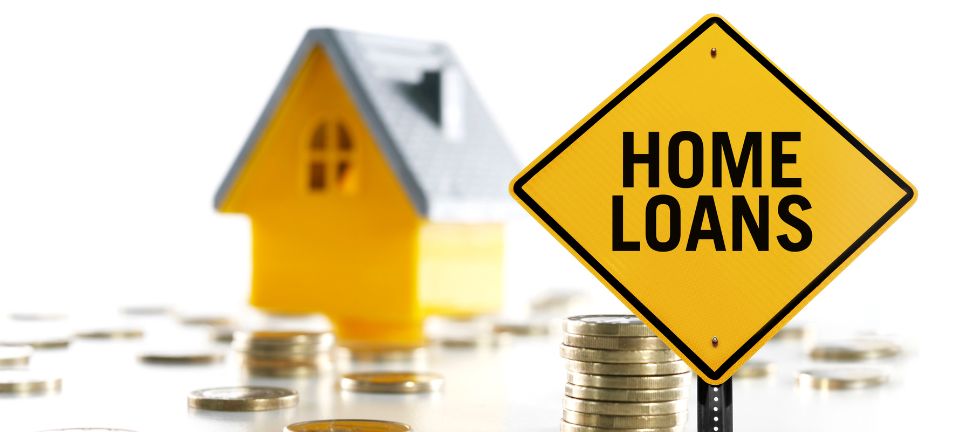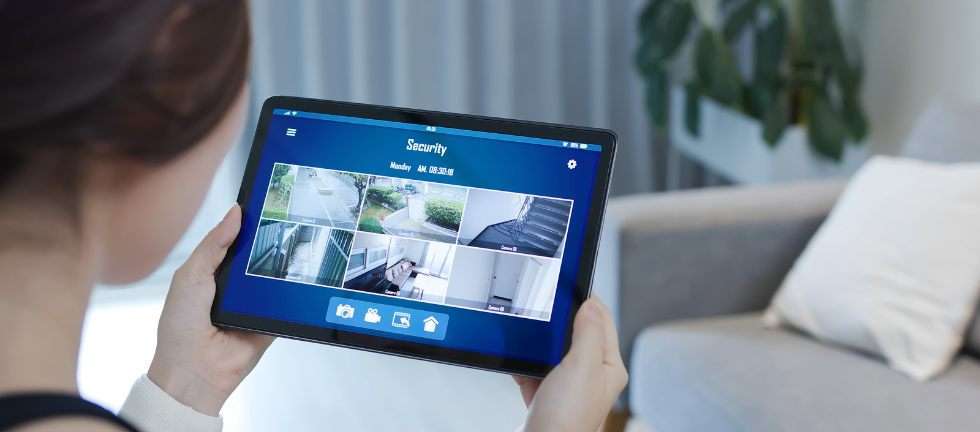Key Takeaway: In South Africa, your main home loan choices are a Variable-Rate Bond, where payments change with the prime interest rate, or a Fixed-Rate Bond, where payments are locked for a set period. You can also add features like an Access Bond for flexibility or consider a 100% Loan if you have no deposit. The best choice depends on your appetite for risk and need for budget certainty.
Your 20-Year Decision: Choosing the Right Home Loan Option
Buying a home is one of the biggest, most exciting steps you’ll ever take. It’s the beginning of a new chapter. But let’s be honest—staring down a 20-year financial commitment can feel more than a little intimidating. You hear friends, family, and estate agents throwing around terms like “bond,” “fixed rate,” “access facility,” and the “prime rate,” and it’s easy to feel overwhelmed.
You’re worried about making the wrong choice. What if you lock yourself into a deal that costs you more in the long run? What if a different type of loan would have suited your life better?
Take a deep breath. It’s not as complicated as it seems.
The truth is, there are only a few key types of home loans (or “bonds,” as we call them in South Africa). Understanding them is the first step to moving from a nervous applicant to a confident homeowner. This article will break down each option, making it simple and clear, so you can choose the perfect fit for your financial future.
Decoding South African Home Loan Options
Think of choosing a home loan like choosing a mobile phone plan. They all let you make calls, but some have fixed monthly costs, while others are pay-as-you-go, and some come with extra data you can dip into. Your home loan works in a similar way. Let’s get into the different plans.
1. The Foundation: Variable Rate vs. Fixed Rate
This is the most fundamental choice you’ll make. It determines how the interest on your loan is calculated, which directly affects your monthly repayment amount.
What is the Prime Lending Rate?
Before we dive in, you need to know about the “prime rate.” Think of it as the starting point for most loans in South Africa. It’s a benchmark interest rate set by the country’s major banks, heavily influenced by the South African Reserve Bank (SARB). When you hear news reports about the “repo rate” changing, the prime rate usually follows suit. You can see the current prime lending rate and how it’s determined on the SARB’s official page.
Your bank will offer you a home loan at prime plus or minus a certain percentage (e.g., prime – 0.5% or prime + 1%), based on your credit profile.
The Variable-Rate Bond
This is the most common type of home loan in South Africa. With a variable-rate bond, your interest rate is directly linked to the prime lending rate.
- How it works: If the prime rate goes up, your interest rate goes up, and so does your monthly bond repayment. If the prime rate goes down, your repayment amount will also decrease, saving you money.
- The reality: You are riding the waves of the economy. This can be great in a low-interest-rate environment but requires you to have a bit of a buffer in your budget for when rates inevitably rise.
The Fixed-Rate Bond
A fixed-rate bond does exactly what the name suggests. It locks in your interest rate for a specific period, typically between one and five years.
- How it works: For the duration of the fixed period, your interest rate will not change, no matter what the prime rate does. Your monthly repayment remains exactly the same, giving you perfect budget certainty.
- The catch: This certainty comes at a price. Banks charge a premium for a fixed rate, so it’s usually set slightly higher than the variable rate on offer at the time. After the fixed period ends, your loan will typically revert to a variable rate.
Here’s a simple table to help you compare:
| Feature | Variable-Rate Bond | Fixed-Rate Bond |
| Certainty | Low. Your payments can change multiple times a year. | High. Your payments are predictable for the fixed term (1-5 years). |
| Potential Savings | High. If the prime rate drops, you benefit immediately. | Low. You miss out on savings if the prime rate drops. |
| Best For… | Buyers who can handle some fluctuation in their budget and want to take advantage of potential rate drops. | First-time buyers, or anyone on a strict budget who values predictable payments above all else. |
2. Special Features: The Access Bond
An Access Bond isn’t a different type of loan, but rather a powerful feature you can add to your standard variable-rate bond. It’s one of the most popular and useful options available.
Think of it like this: your home loan has a “revolving credit” facility attached to it.
- How it works: Any extra money you pay into your bond, over and above your minimum monthly repayment, accumulates in a special sub-account. An Access Bond allows you to withdraw or “access” this extra money whenever you need it.
- Example: Your bond payment is R10,000 per month. You decide to pay R12,000 each month for a year. You have now paid an extra R24,000 (R2,000 x 12) into your loan. With an access facility, you could withdraw that R24,000 if you suddenly needed it for a car repair or a medical emergency.
- The benefit: It’s a fantastic, low-interest way to build an emergency fund. The money you pay in reduces the interest you owe on your loan, but it remains available to you if you need it.
This is a brilliant tool for financially disciplined people. It helps you save on interest while providing a safety net.
3. The No-Deposit Option: The 100% Home Loan
Traditionally, banks require you to pay a deposit (usually 10% of the property’s purchase price) from your own savings. A 100% home loan, also known as a zero-deposit loan, is where the bank lends you the full purchase price of the property.
These loans have become more common, especially to help first-time buyers enter the market. However, you need to weigh the pros and cons carefully.
The Pros:
- Get into the market faster: You don’t need to spend years saving up for a deposit. If you have a good, stable income but low savings, this can be your ticket to homeownership.
The Cons:
- Higher Interest Rate: The bank is taking on more risk by lending you the full amount. To compensate, they will almost always offer you a less favourable interest rate (e.g., prime + 1.5%) than if you had provided a deposit.
- Harder to Qualify: You’ll need an excellent credit score and a stable income to prove you can handle the repayments without the safety cushion of a deposit.
- No Immediate Equity: Your loan amount is equal to the property’s value. This means if you have to sell soon after buying, you might not make enough to cover the bond and the selling costs.
- More Expensive Over Time: That slightly higher interest rate adds up significantly over 20 years, meaning you pay much more for your home in the long run.
Which One is Right for You? A Simple Framework
Ask yourself these questions to find your best fit:
- How important is a predictable monthly payment to me?
- Very Important: A Fixed-Rate Bond is your safest bet. You’ll know exactly what you owe each month, making budgeting a breeze.
- Less Important: A Variable-Rate Bond could save you money if rates fall.
- Do I want my home loan to double as a savings and emergency fund?
- Yes, definitely: Make sure your loan has an Access Bond facility. It’s the smartest way to make your money work for you.
- Have I saved up a deposit?
- Yes: Excellent! This will help you secure a better interest rate and reduce your long-term costs.
- No, but I have a strong income: A 100% Home Loan might be an option, but be fully aware of the higher long-term costs and interest rate.
- Am I a first-time buyer feeling nervous about fluctuating costs?
- Consider starting with a Fixed-Rate Bond for the first 2-3 years. This gives you stability while you get used to the costs of homeownership, which often include more than just the bond. (For more on this, read our piece on Understanding the Hidden Costs of Buying a Home).
From Confused Applicant to Confident Homeowner
Choosing a home loan is a major decision, but it doesn’t have to be a source of fear. By understanding these core options—Variable, Fixed, Access, and 100%—you’re no longer just a passive applicant. You are an informed consumer.
You can now walk into negotiations with your bank and ask for the specific product that fits your life, your budget, and your goals. This knowledge empowers you to build a secure and happy future in your new home, on your own terms.
—————————————————————
FAQ: Your Toughest Home Loan Questions Answered
What is the difference between a variable and a fixed interest rate on a bond?
A variable interest rate is linked to the prime lending rate, so your monthly bond payment can go up or down as the rate changes. A fixed interest rate is locked in for a set period (e.g., 2 years), so your payment stays exactly the same during that time, providing budget certainty but often at a slightly higher initial rate.
Which type of home loan is best for a first-time buyer?
There’s no single “best” type, but a Fixed-Rate Bond is often recommended for first-time buyers. It offers predictable payments, which makes it easier to budget for all the new costs of homeownership without the stress of potential interest rate hikes. An Access Bond feature is also highly valuable for building an emergency fund.
What is an access bond and how does it work?
An Access Bond is a feature added to a standard home loan. It allows you to withdraw any extra money you have paid into your bond over and above the minimum required repayment. This extra money reduces your loan’s interest while also acting as an accessible savings pool for emergencies.
Are 100% home loans a good idea?
They can be a good idea for buyers with a strong, reliable income but who haven’t had time to save for a large deposit. However, they are not without risks. You will likely pay a higher interest rate, it’s harder to qualify for one, and you won’t have any immediate equity in your home. They should be considered carefully against the long-term cost.
—————————————————————
This article was written by the property finance experts at Future Finance. While this piece focuses on the very beginning of the property ownership journey, our core service of Property Bridging Finance helps homeowners at another crucial stage—when they sell. We believe in empowering South Africans with clear, honest information for every step of their property journey.




